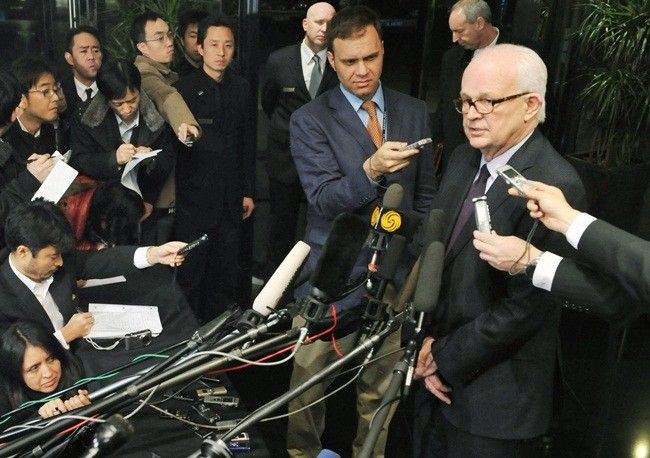U.S. in contact with South Korea after North's attack

The United Stated said Tuesday it was in close and continuing talks with South Korea after a North Korean artillery attack killed two South Korean marines.
White House Press Secretary Robert Gibbs said the United States condemns the artillery attack on the South Korean island of Yeonpyeong near the disputed western sea border between the two nations. Gibbs called on North Korea to halt its belligerent action and said the U.S. was committed to defending its ally.
White House Deputy Press Secretary Bill Burton said Tuesday that President Barack Obama will be calling South Korean President Lee Myung-bak later today to express American solidarity.
The President is outraged by this action. We should stand shoulder to shoulder with South Korea, he told reporters. However he did not indicate what specific action the U.S. would take.
President Obama was informed by his national security adviser of the incident this morning at 3:55 a.m.
South Korea fired back during a one-hour skirmish where 16 South Korean soldiers and three civilians were wounded, according to reports. It is unknown how many North Korean injuries or casualties resulted.
The attack came as Stephen Bosworth, the U.S. special representative for North Korea policy, was in Beijing discussing North Korea's nuclear uranium enrichment facility.
We both share a view that such conflict is very undesirable, and I expressed to them the desire that restraint be exercised on all sides and I think we agree on that, he told reporters.
Tuesday's incident is the latest in a series of skirmishes with the North. The South and various allies blamed the North for the torpedo sinking of a South Korean Navy ship in May. After that, two other incidents included the exchange of coastal artillery fire and the detention of a South Korean fishing boat that went into Northern waters.
While the latest crisis prior to Tuesday appeared to be following the same trajectory as others involving North-South hostilities, which erupted and then died down without a serious military escalation, that could change, according to Paul Stares, a senior fellow at the Council on Foreign Relations.
This pattern of restraint, however, cannot be taken for granted, Stares wrote in a memorandum on military escalation in Korea earlier this month. Further provocations by North Korea as well as other dangerous military interactions on or around the Korean peninsula remain a serious threat and carry the risk of miscalculation and unintended escalation.
Implications for the United States of a serious military escalation would be the endangerment fo about 25,000 U.S. military servicemen and women deployed to South Korea as part of a joint defense treaty, he wrote. Also at risk were 50,000 U.S. civilians living and working in South Korea, with about 30,000 in Seoul.
Preventive options to lessen the likelihood of dangerous incidents include enhanced surveillance of disputed or sensitive areas, upgrades of South Korean military response capabilities and patrolling.
Diplomatically, threats of additional punitive actions for any transgression could be intensified economic pressure and even proportional military retaliation, Stares wrote.
U.S. markets dropped amid the rising tensions. The Dow, S&P 500 and Nasdaq were all down more than 1.5 percent in early trading on Tuesday.
© Copyright IBTimes 2025. All rights reserved.





















